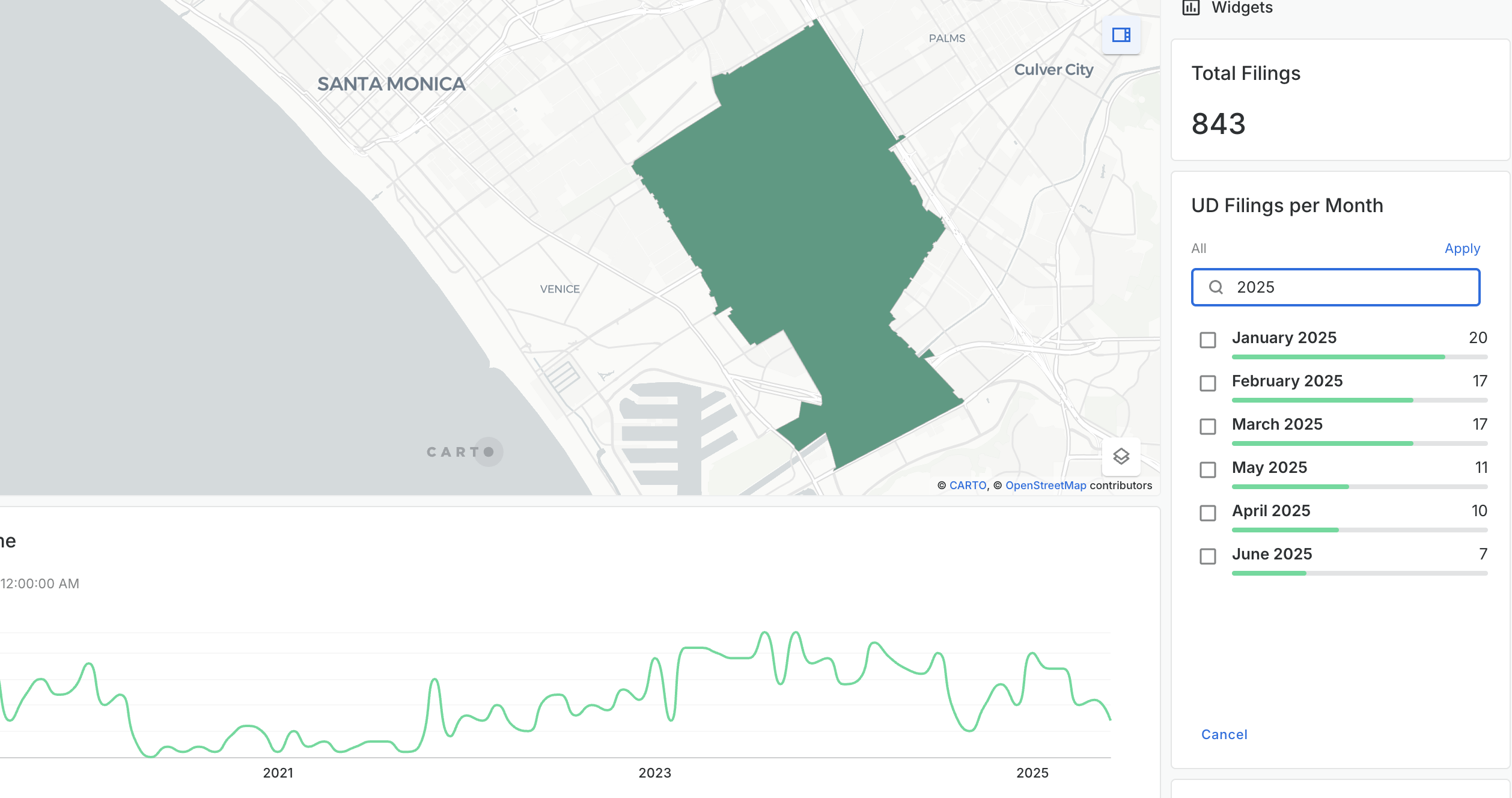A new map of eviction filings in Los Angeles County shows just how deeply housing insecurity continues to shape daily life. In the 90066 zip code, which covers most of Mar Vista, landlords have filed 843 eviction lawsuits since 2018. Each case represents a destabilized household, a family forced into court, and a reminder of how vulnerable renters remain in a city that has failed to build enough affordable housing.
The data comes from the Anti-Eviction Mapping Project, which draws directly from Los Angeles County Superior Court records and updates quarterly. The map tracks filings month by month at the zip code level, offering an unprecedented view of where displacement pressures are concentrated. These filings are distinct from initial notices of intent, which landlords must submit before going to court. While many notices are resolved, once a case reaches Superior Court the stakes are far higher. Tenants who cannot respond in time or secure representation often lose by default, not because they lack a defense but because the process is heavily tilted toward landlords.
To begin correcting that imbalance, the City Council unanimously adopted one of the nation’s strongest Tenant Right to Counsel ordinances this year. The law guarantees free legal representation for eligible renters facing eviction, to be phased in over the next five to seven years. Households earning up to 80 percent of area median income will qualify (about $77,700 for an individual or $110,950 for a family of four). The program will start in high-vulnerability zip codes and eventually expand citywide.
Passing the law, however, is only the first step. Advocates warn that full implementation will take years, requiring far more attorneys, infrastructure, and funding than the city currently has. Barbara Schultz of the Legal Aid Foundation of Los Angeles noted that even with an initial $30 million, the city can only fund about 80 eviction defense attorneys in priority areas, while closer to 300 will be needed to serve all eligible renters. For now, many tenants still face eviction court without representation.
The program is administered through Stay Housed LA and funded largely by Measure ULA, the “mansion tax” approved by voters in 2022. ULA raises revenue from high-value property transfers to fund affordable housing, homelessness prevention, and tenant protections. Right to counsel is one of its most vital investments, making the recent fight over ULA all the more urgent. Just last week, Measure ULA survived its most serious legislative threat to date when Mayor Karen Bass and her allies in Sacramento withdrew SB 423, a bill that would have carved out massive exemptions to ULA, slashing its revenue by up to 30 percent and gutting its ability to meet voter mandates.
The bill, co-written by State Senator Lena Gonzalez and Assemblymember Tina McKinnor and quietly advanced by Bass’s office, would have reduced tax rates for new commercial and multifamily developments and loosened affordability covenants tied to distressed properties. Drafted hastily and without input from city agencies or community groups implementing the measure, it was introduced just days after Los Angeles opened applications for $387 million in ULA funding, the largest affordable housing investment in city history.
The eviction map identifies hotspots of activity in downtown Los Angeles, South Central, Palmdale, and Long Beach, areas with high renter populations and longstanding affordability struggles. Mar Vista may seem different, and yet the 843 lawsuits filed in 90066 tell another story. Rising rents and an influx of wealthier households mask the precarious position of long-time renters who are equally vulnerable to displacement. Without robust defense, many lose their cases simply because they lack counsel. In eviction courts across Los Angeles, landlords have lawyers in about 95 percent of cases, while tenants historically have had almost none.
Seeing eviction numbers on this scale hammers home why every penny of ULA funding matters. The same revenue that powerful interests and even our own city leaders are trying to cut is what makes programs like right to counsel possible. Undermining these programs risks reversing potential gains and pushing more households into homelessness – and for Mar Vista, that would mean more neighbors displaced, fewer renters able to remain in the community, accelerated gentrification, and an even deeper housing crisis.

